I went to a clinic where a doctor ran some tests and came back with a diagnosis I didn’t believe then and still don’t today. But I wasn’t about to argue with the doctor while in pain. I didn’t want to postpone the relief that drove me to see the doctor in the first place. The doctor prescribed some meds, I followed his directions, and the chest pain went away. But then arrived stomach pains and more intense vomiting. I couldn’t keep anything down. After I vomited everything so I knew my stomach was empty, the stomach pains vanished only to be replaced with abdominal cramps. I didn’t sleep well that night at all. I’m in recovery now, but as I’ve always been the pensive and reflective sort, I certainly can’t resist reflecting on this experience. As I do so, I can see clear connections between my experience and Elder Gong’s Conference address. All of our lives have been greatly blessed by covenant belonging. A culture in change  When I first heard his address in Conference, Elder Gong’s description of a gospel culture centered on Christ impressed me. Indeed, true gospel culture is centered on the Savior and solidified by covenants we make to serve Him and each other. Yet traditionally LDS subculture has centered on marital status as the marker of belonging. And that center has caused countless challenges for many LDS singles. Long time audience members know I once harped endlessly on our need to change the culture. The problem is in how singles think, yes. But the problem is also in how everyone thinks, and that thinking is manifested in culture. Elder Gong cuts through all of the bunk to the real heart of a Zion culture — making and keeping sacred covenants to become more like Jesus Christ.
God never looked at His children through the lens of marital status. I’m not entirely sure why we as a people ever did, but I rejoice in our culture changing for the better. A bridge across the gap  I also rejoice that Elder Gong’s message to center ourselves in Christlike covenants is not the first apparently aimed at changing the culture to adopt a more ennobling marker of belonging. Albeit not as directly as I have, various Church leaders have occasionally spoken about the divide between singles and marrieds in LDS culture and our need to bridge the gap. Elder Gong followed suit in addressing that divide but doing so in a somewhat less indirect manner.
I love that balance between including singles and promoting marriage and family. These two elements were never meant to be mutually exclusive! Those who understand the concept of covenant belonging see that truth plain as day. A place to belong  You may be wondering now what all of this has to do with my near miss of a heart attack. It’s very simple. I belong as all LDS singles do to a community bound together by covenants to serve the Lord and serve one another. The day after my near miss, my ministering brother and a member of the bishopric were in my home visiting with me and providing a priesthood blessing. Now, I know that doesn’t happen everywhere. I’ve been in some of those wards where it doesn’t happen. But if you find yourself there, I can assure you it will pass and you will come to a better place if you stay faithful to your covenants and do your best to practice covenant belonging. The Lord is mindful of all of us. I know He’s been mindful of me. Feeling that love has renewed my desire to be true to my covenants and to exemplify God’s definition of real belonging that we can find therein. And it is by living covenant belonging that we can best feel that love. And that will bring us more joy in our journey.
0 Comments
That said, I’m not going to approach exercise in the usual way. Instead, I’ll share how you can improve an exercise habit whether you exercise not at all or everyday. All you need to do is just one more. Determine your motivation  First, let me start where everyone else starts — a recognition of our highly litigious society. Please consult with a competent physician before starting any exercise program. That said, before you see a doctor, you need to establish some motivation. Without the proper motivation, you simply won’t follow any program long enough to integrate it permanently into your life. So get crystal clear on why you’re going to do this. Your reason must be compelling enough to push past the resistance to change you’ll surely encounter. And there’s no one-size-fits-all reason. Perhaps you hate having your weight limit you. It’s harder to bend over and stand up when you’re fat. Or perhaps you need to keep up with some younger folks in your life. That would currently help me as an Aaronic Priesthood advisor. Or maybe you need to shed those pounds so you can become more agreeable and progress in your dating journey. Argue with it all you want, but no rightness in any argument will diminish the truth that many singles have, do, and will continue to assess potential dating partners by physical appearance. Start simple  Yes, I know how it sounds, but it’s no less true. And if you don’t become more agreeable by losing the extra weight, the only way to progress in your dating journey is to find someone who’s satisfied with less. Those people are very few and far between, so relying on that proportion seriously decreases your probability of success. As I point out in my new book, you increase your probability of success by opening yourself to more possibilities for the successful outcome to occur. The best way to do that is to raise what you offer to a whole new level so that enough people find you agreeable. The more people that find you agreeable, the more possibilities you create for your successful outcome to occur, and thus the more probable your success will be. Now, before you despair at having to exercise to progress in your dating journey, there’s a simple way to get started. And it’ll improve your performance wherever you are on the fitness spectrum. It’s called the One More Principle. All you need to do is just one more than you did before. So if you’re just starting out, what you did “before” is zero. All you need to do today is one — one sit-up, one push-up, one whatever. When it’s time to do that exercise again, do just one more, which is two. And so on. Adopt the lifestyle  It’s amazingly simple, and yet, if you stay with it, you’ll be amazed at how easily you can ease yourself into an exercise habit you previously didn’t have. And here’s the real beauty: If you practice an exercise habit long enough, you’ll actually start wanting to exercise. Crazy, yes, but it’s true. I’ve personally experienced it. What before made me cower away in terror (What? I have to run how far?) became something that filled me with great anticipation (Oh yeah! I get to run that far!). And anyone can do one more. If you haven’t exercised in a while (or ever), you can do one push-up. If last time you did ten push-ups, now you can do eleven. If last time you did 100, this time you can do 101. By doing just one more, anyone can progress. And you can adopt the One More Principle in not just exercise but everything. Last time you wrote 2573 words, so this time you write 2574 words. Last week you went meatless for two meals, so this week you eat three meatless meals. When you do just one more as a lifestyle, you’ll find yourself and your life substantially improved. And that will bring you more joy in your journey.
Yet a recent experience caused me much reflection on both my own transformation to optimism and how we can all help those singles wont to wallow in their own mire come Friday. An unexpected experience  Last Saturday, the newest member of my ward was baptized. The service reminded me of my own mission, and I cried as the Spirit brought past sacred experiences to my remembrance. As I left, I noticed across the parking lot a sister missionary who’d previously been in the ward. She had obviously returned to attend the baptism. Just before her transfer, she and her companion gave me a very special gift. They snuck up to my apartment door and plastered it with paper hearts sharing messages of love, hope, and encouragement. I never had the chance to thank them, because the very next day transfers came, and elders arrived in place of both sisters. Seeing that sister now in the parking lot, I called out to her and confided that what she and her companion left for me that night before their transfer meant a great deal to me. I then thanked her. What happened next surprised me. She told me I should be thanked because I’d helped her tremendously. She didn’t go into details — I’m still insanely curious — but then she said something that later drove deep reflection. She said, “You’re awesome.” A meditated realization  What surprised me was less that she said it (although yes, I wasn’t expecting to hear that from anyone, let alone a sister missionary) or that she was really sincere in saying it (which she was) and more that I found it hard to hear. That realization caused me much reflection. I’m very comfortable with myself and enjoy my own society immensely. So why wouldn’t I believe I’m awesome? (And why is there an obnoxious song from The Lego Movie playing in my head right now?) Seriously, why would that message be so hard for me to hear? After some deep reflection, I concluded it was hard for me to hear because I’d grown too accustomed to hearing the exact opposite. That shouldn’t surprise anyone. Looking back over more than two decades of being a single Latter-day Saint, the vast majority of the messages I received from single LDS ladies were negative. They didn’t affirm my divine worth nor recognize the goodness of a heart that had sacrificed and suffered much. That’s not to say there weren’t those few who gave me positive messages (there were) or that I made my own mistakes worthy of negative messaging (I did). Rather it simply means I heard negative messages so often, especially in the dating arena, I came to believe them. A more joyful life  I don’t believe them any more. My view today is much more optimistic. But what would my life have been like had I received more positive messages from other single sisters more regularly? And what of the other LDS singles who are now what I once was? What of those who are prone to throw that pity party on Friday because they don’t have a valentine of their own? If you’re among that crowd, please know you have agency. That means you choose everything for yourself, including what to believe. I struggled for a long time with negative messages until I realized my agency means I get to choose everything for myself, including what to believe. Just because someone else believes something doesn’t mean I must believe it also. I don’t have to believe what I don’t want. It’s the same for you. When others send you a negative message, don’t believe them! Instead, believe you have great worth (because you do) and God loves you so much He has prepared glorious blessings for you (because He does and He has). Then share that love with others and skip the pity party. Let your messaging reaffirm the worth of every individual. Then you’ll feel your own worth reaffirmed. And that will bring you more joy in your journey.
And if 80% of my success comes from diet, then the bulk of my effort should focus on what I eat. That thinking has led me to ponder the Word of Wisdom. I returned to D&C 89, and there I found a word to the wise. Recognize how you think  Many of us are more familiar with the don’ts of this law of health than with the dos. And I’m sure many of us have also heard how we should emphasize the dos. But are you really living them? I pointed that question towards myself. And I considered it seriously. I returned to D&C 89 with no agenda other than the desire to live my religion more completely. Instead of reading it passively and saying, “Yeah, I know I should eat my veggies,” or trying to justify the latest fad diet, I read it for what it was. I wanted to let the real meaning there on the surface speak for itself, to let it just say what it says. And what I found floored me. I saw that my weight loss efforts have never really succeeded because I never got my diet right. If diet is 80% of success, then you have to get it right to succeed. And getting my diet wrong wasn’t entirely my fault. I was simply responding to deeply entrenched ways of thinking — less effective ways of thinking that weren’t promoting my success. In short, I’d been raised to be unsuccessful. Discover the truth  If you read D&C 89 looking to answer the question “What diet best promotes health?” and just let it say what it says, you can find the answer to that question very plainly evident. What should we consume? Herbs? Yes, “in the season thereof” (v. 11). Fruits? Yes, “in the season thereof” (v. 11). Grains? Yes, for they are “the staff of life” (v. 14), principally wheat (v. 17). Meat? Yes, but sparingly. Think about that word for a moment — sparingly. The diet I grew up on is the traditional American diet in which meat is consumed for three of the three meals every day. We have sausage and bacon and ham for breakfast. For lunch we eat meat in sandwiches, soups, stews, salads, pizza, and of course the ever popular burger. For dinner, all the traditional American fare centers on meat. Honey roasted ham. Fried chicken. Pot roast. Pork chops. Steak. That Thanksgiving turkey. Meatloaf. (Yeah, that name says it all!) How can this be sparingly? I recognize the relative nature of a word like sparingly, but I don’t think any appropriate definition would get anywhere near 100%. The inescapable conclusion is then clear. The traditional American diet is at odds with the Lord’s law of health. The diet the Master Healer promotes is plant-based. Align yourself with truth  Now don’t get me wrong. I love my bacon cheeseburger, my meat lover’s pizza, and my sausage biscuits and gravy. I have no intention of becoming vegetarian or vegan. That said, I can’t ignore the inescapable conclusion from my latest reading of the Word of Wisdom. Sparingly doesn’t mean not at all, just not all the time. So I’m going to keep my bacon cheeseburger, meat lover’s pizza, and sausage biscuits and gravy. I just won’t be eating them all the time. In their place I’ll be eating more meatless meals. This has led me to experiment as I search for a diet that promotes both health and enjoyable flavors, because no diet is sustainable if it doesn’t use real food that tastes good. And inasmuch as I’m not the only one struggling with diet, I’ll be sharing my successful recipes with all of you so you can have your own success. We find a word to the wise when we consider what words mean. And we’re wise when we embrace that word and align ourselves with truth. When we do that in any aspect of life, we improve ourselves in every aspect of life. And that will bring us more joy in our journey.
|
Author
Howdy! I'm Lance, host of Joy in the Journey Radio. I've been blogging about LDS singles life since 2012, and since 2018 I've been producing a weekly Internet radio show and podcast to help LDS singles have more joy in their journey and bring all Latter-day Saints together. Let's engage a conversation that will increase the faith of LDS singles and bring singles and marrieds together in a true unity of the faith.
Comment
Joy in the Journey Radio encourages the free discussion of ideas but reserves the right to remove and/or block comments which do not conform to LDS standards.
Donate
Joy in the Journey Radio offers many free resources to help LDS singles everywhere, but it certainly isn't free! Help Joy in the Journey Radio in its mission to improve the lives of LDS singles by donating today.
Posts by Month
December 2022
Categories
All
|
||||||||||||||||||||||||||||
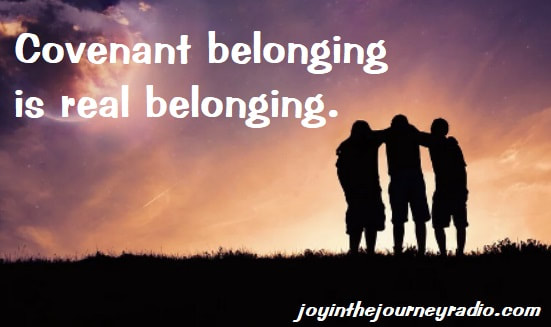

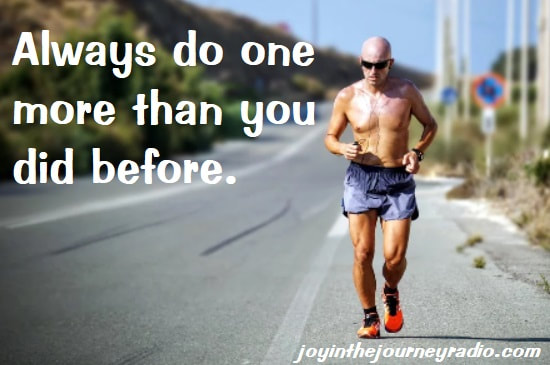

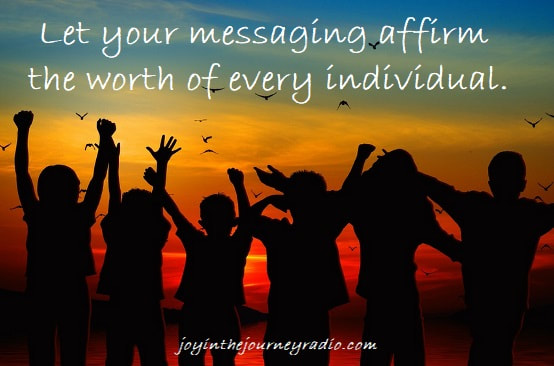

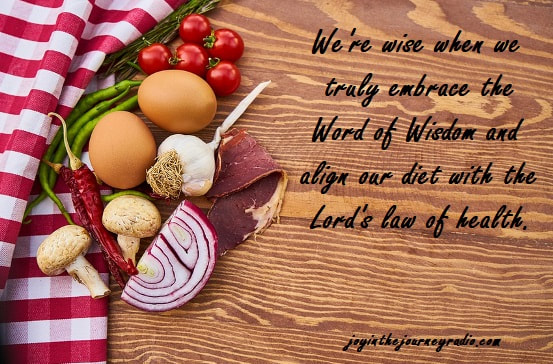
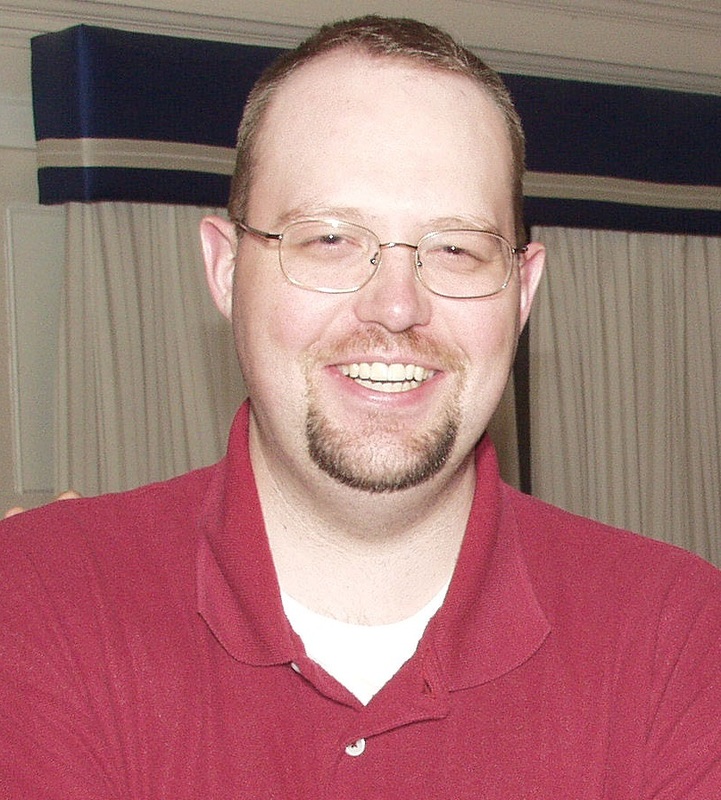
 RSS Feed
RSS Feed